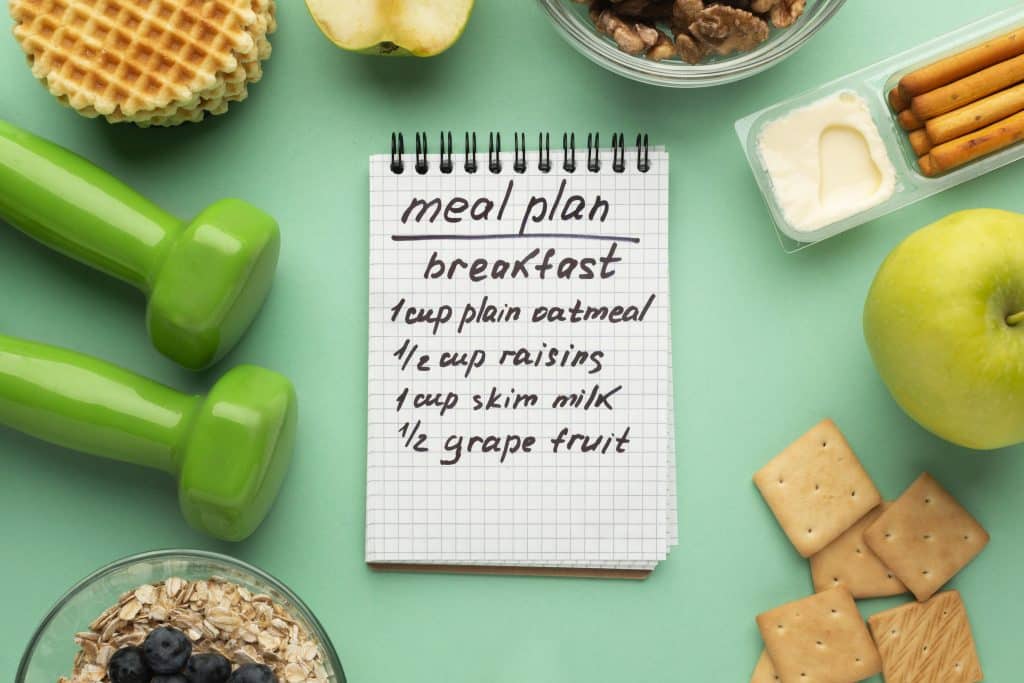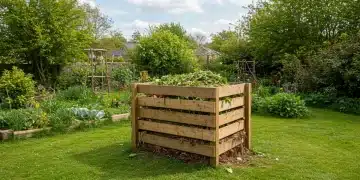7 Days, 7 Habits: Transform Your Health and Happiness

A Practical Guide for Body, Mind, and Routine

Boost your well-being in just 7 days with a science-backed plan that blends healthy habits, mindset shifts, and daily organization. By adopting simple yet consistent habits, you’ll strengthen your body, sharpen your mind, and create emotional balance.
These small daily practices—like mindful breathing, gentle movement, and digital detox—become powerful building blocks for long-term wellness.
Unlike quick fixes, sustainable habits shape a lifestyle that supports both productivity and peace of mind. When practiced consistently, they help reduce stress, improve sleep, and boost energy.
This 7-day plan is designed not just as a temporary challenge but as a foundation for habits that last a lifetime.
Why Well-Being Matters More Than Ever
Well-being isn’t just about avoiding illness. It’s the daily state of living with clarity, balance, energy, and connection. In a world where stress and digital overload are constant, nurturing well-being has become a survival skill, not a luxury.
The World Health Organization (WHO) defines health as a complete state of physical, mental, and social well-being. That makes it clear: eating better, sleeping enough, exercising regularly, and cultivating good relationships all play vital roles in living a fulfilling life.
Benefits of Prioritizing Well-Being
-
Reduced anxiety and stress levels.
-
Better sleep cycles and deeper recovery.
-
More consistent energy and focus.
-
Healthier relationships and stronger connections.
-
Long-term prevention of chronic illness.
-
Greater resilience and emotional stability.
The 7-Day Well-Being Plan
This plan is simple enough for beginners but powerful enough to spark meaningful change. Each day builds on the last, balancing physical health, mental clarity, and emotional care. By focusing on small, repeatable habits, you create momentum that naturally carries you forward.
Instead of overwhelming you with drastic lifestyle changes, the 7-Day Well-Being Plan introduces practical steps—like breathing exercises, gentle movement, mindful eating, and better sleep routines—that are easy to follow yet highly effective.
The true strength of this plan lies in consistency. When practiced regularly, these simple habits turn into automatic behaviors that reduce stress, improve mood, and enhance overall quality of life. Think of it as building a foundation
each day adds another layer of resilience and balance, guiding you toward a healthier and more sustainable lifestyle.
Day 1 — Breathe and Organize
The first step toward lasting well-being is creating calm and clarity at the start of your day. On Day 1, you’ll focus on building simple yet powerful habits that prepare both body and mind for balance and productivity.
Begin with five minutes of deep breathing or guided meditation. This small practice activates your parasympathetic nervous system, helping to reduce cortisol (the stress hormone), slow racing thoughts, and improve mental clarity.
Breathing is one of the most underrated Joyfinderz yet it can be practiced anywhere—while sitting at your desk, before a meeting, or even in line at the store. Over time, mindful breathing becomes a reset button you can use anytime stress builds up.
After centering yourself, write down your top three priorities for the day. This isn’t about creating a long, overwhelming to-do list—it’s about clarity and focus.
By narrowing down to three meaningful tasks, you prevent decision fatigue, reduce distractions, and set yourself up for small wins that build momentum. This prioritization habit creates structure and ensures your energy is spent on what matters most.
Finally, make hydration a cornerstone of your morning routine. Keep a bottle of water nearby and drink a full glass before your first cup of coffee. This habit replenishes your body after hours of sleep, boosts metabolism, and supports both energy levels and cognitive performance.
Staying hydrated throughout the day also helps regulate mood and prevents the fatigue that often gets mistaken for hunger.
Day 1 establishes three cornerstone habits breathing, prioritizing, and hydrating—that may seem simple but create a ripple effect throughout your week.
Together, they reduce stress, sharpen focus, and give your body the fuel it needs to perform at its best. By practicing these consistently, you build a strong foundation for every other step of your well-being journey.
Day 2 — Gentle Movement

Movement is one of the most powerful well-being habits, but it doesn’t have to mean hours of high-intensity training or pushing your body to exhaustion. In fact, science shows that even 20 minutes of light activity can transform your mood, increase energy, and improve long-term health.
Start with something accessible and enjoyable. A brisk walk outdoors is one of the simplest yet most effective ways to move your body. Not only does it get your blood circulating and muscles working, but exposure to natural light also helps regulate your circadian rhythm, ensuring better sleep later in the day.
Sunlight further stimulates vitamin D production, which strengthens bones, supports immunity, and boosts mood. If walking isn’t an option, try gentle stretching, yoga, or dancing to your favorite playlist—any activity that gets you moving counts.
Nutrition is another cornerstone of Day 2. At mealtime, fill half your plate with vegetables. This small but powerful guideline increases your intake of fiber, vitamins, minerals, and antioxidants.
These nutrients play a vital role in supporting digestion, maintaining steady energy, and strengthening immunity. Over time, this becomes an effortless, sustainable nutrition habit that encourages balance without requiring strict diets or calorie counting.
Finally, close the day with gratitude journaling. Before bed, write down one positive thing from your day, no matter how small. This habit shifts your brain’s focus away from stress and toward growth, optimism, and resilience.
Research shows that consistent gratitude practice can improve sleep quality, boost overall happiness, and lower anxiety levels. It’s a simple tool with profound long-term benefits.
Day 2 is all about creating gentle, sustainable habits that nurture both body and mind. Movement recharges your energy, mindful eating fuels your health, and gratitude grounds your emotions. Together, they form a balanced foundation that prepares you for deeper transformation in the days ahead.
Day 3 — Digital Reset
Screens dominate modern life—from work emails and video calls to streaming, shopping, and social media. While technology makes life more convenient, constant exposure can drain focus, overstimulate the brain, and disrupt natural sleep cycles. That’s why Day 3 is dedicated to Joyfinderz
reset, introducing mindful habits that restore balance between the online and offline worlds.
Begin by scheduling a one-hour screen-free break during your day. Think of this as giving your mind space to breathe. Instead of scrolling, choose an offline activity that engages your hands and creativity: cook a nourishing meal, read a physical book, sketch or paint, do some gardening, or tidy up a drawer.
These analog experiences not only calm the nervous system but also spark creativity and provide a refreshing sense of accomplishment.
As evening approaches, focus on preparing your body for true rest. Go to bed 30 minutes earlier than usual, creating a buffer that allows for deeper, more restorative sleep. Power down your devices 30–60 minutes before bedtime to reduce blue light exposure, which interferes with melatonin production—the hormone that signals your body it’s time to sleep.
Replace late-night scrolling with soothing rituals that support relaxation. You might enjoy light stretching to release tension, sipping a cup of calming herbal tea, or journaling a few thoughts from your day. These small habits become signals to your body and mind that it’s time to transition into rest mode.
Day 3 demonstrates that well-being isn’t just about adding more to your life—it’s also about creating boundaries. By establishing mindful healthy lifestyle
, you take back control from technology, reset your mind, and create space for deeper focus, more creativity, and better sleep.
Day 4 — Energy and Focus

Well-being isn’t just about slowing down or reducing stress—it also thrives when your body and mind are fueled with intention. Energy and focus don’t appear by chance; they are cultivated through consistent habits that support your physical health, mental clarity, and emotional resilience. Day 4 is designed to help you build that foundation.
Start the morning with a balanced breakfast that includes fruit, protein, and whole grains. This isn’t about strict diets—it’s about giving your body steady fuel that stabilizes blood sugar and prevents the mid-morning crash that leaves you tired and unfocused.
A smoothie with berries and Greek yogurt, oatmeal with nuts and seeds, or avocado toast with eggs are all simple yet powerful examples. Making this choice daily becomes a cornerstone habit for maintaining energy and mental sharpness.
Next, apply the Pomodoro Technique, a productivity method that alternates 25 minutes of deep, focused work with a short 5-minute break.
These structured intervals train your brain to concentrate without burning out and create a rhythm that feels manageable even during demanding tasks.
Over time, this simple habit boosts efficiency, reduces procrastination, and helps you accomplish more with less stress.
Finally, remember that energy and focus aren’t just individual pursuits—they are reinforced through connection. Take a few minutes today to reach out to a friend, colleague, or family member.
A quick chat or phone call may seem small, but it is one of the simplest habits that can lower stress, boost oxytocin levels (the “bonding hormone”), and remind you that you are supported.
Social connections are often overlooked, yet they are among the most powerful well-being habits for building resilience, staying motivated, and nurturing lasting happiness.
Day 4 shows that when you combine healthy fueling habits, mindful work rhythms, and meaningful relationships, you create a balanced lifestyle that not only sustains energy but also sharpens focus and strengthens emotional stability.
These integrated habits prove that well-being is not just about rest, but also about thriving with clarity, purpose, and connection in daily life.
Day 5 — Emotional Care
Taking care of your emotional well-being is just as important as maintaining physical health. While stress, pressure, and negative thoughts can easily take over daily life, intentional habits can serve as a shield—helping you stay grounded, resilient, and positive.
Day 5 focuses on building routines that nurture your emotional balance and protect your mental health.
Begin with journaling about what brought you joy this week. It doesn’t need to be lengthy—just a few sentences or bullet points are enough. By reflecting on positive experiences, you train your brain to notice the good instead of constantly dwelling on challenges.
Over time, this simple habit builds gratitude, strengthens optimism, and helps you handle setbacks with more perspective.
Next, dedicate at least 15 minutes to moderate exercise—whether that’s yoga, cycling, dancing, or a brisk walk. Emotional stress often shows up physically as tension in the shoulders, headaches, or fatigue.
Movement releases endorphins, the body’s natural “feel-good” chemicals, and helps process emotions in a healthy way. By turning exercise into a consistent habit, you not only care for your body but also create a reliable outlet for stress relief.
As the day winds down, focus on ending your night with uplifting content. Instead of doom-scrolling through negative news or endless social media feeds, choose something that inspires or calms you—a motivational TED Talk, a podcast that sparks curiosity, or a relaxing audiobook. This final habit shapes your emotional state before sleep, setting a positive tone for rest, dreams, and the day ahead.
Day 5 emphasizes that emotional well-being doesn’t come from ignoring negative feelings, but from consistently practicing habits that build resilience.
Through reflection, movement, and mindful consumption of positive content, you create a strong emotional foundation that supports every other area of your life.
Day 6 — Practical Organization

Clutter—whether in your home, mind, or finances—is one of the most common hidden sources of stress. When things feel disorganized, your brain has to work harder to process information, leaving you overwhelmed and drained. That’s why Day 6 focuses on practical organization habits that restore clarity and give you back a sense of control.
Start with your finances, a major trigger of anxiety for many people. Take a few minutes to review your weekly expenses using simple tools like YNAB (You Need a Budget), Mobills, or Mint.
Even the smallest financial habits—like tracking daily spending, separating money for savings, or checking bank balances regularly—can reduce uncertainty and build confidence. Over time, these habits not only lower stress but also create a foundation for long-term financial well-being.
Next, dedicate 15 minutes to tidying up a single space in your home. It could be your desk, your kitchen counter, or even one drawer.
By starting small, you avoid overwhelm and experience a quick win that creates momentum. This approach transforms organization from a dreaded task into a natural daily habit.
Each small effort compounds, leading to a calmer, cleaner environment that directly supports mental clarity.
Finally, end the day by setting micro-goals for the week ahead. Instead of writing long, intimidating to-do lists, focus on 3–5 achievable priorities.
This simple planning habit gives structure to your days, reduces decision fatigue, and keeps you aligned with what truly matters. When your goals are clear, your energy and focus naturally follow.
Day 6 shows that organization doesn’t have to be complicated.
By practicing these small but consistent habits—financial tracking, daily tidying, and setting micro-goals—you reduce stress, sharpen your focus, and create an environment that supports long-term well-being.
Organization, when done gradually, becomes less of a chore and more of a lifestyle of clarity and balance.
Day 7 — Full Recharge
True balance isn’t achieved by constantly pushing yourself—it also requires intentional pauses. That’s why Day 7 is dedicated entirely to recharge habits, giving your body and mind the opportunity to restore, reset, and prepare for the week ahead.
Start by spending time outdoors, even if only for 20–30 minutes. Exposure to natural light helps regulate your circadian rhythm, the internal clock that governs your sleep–wake cycle.
Sunlight also stimulates vitamin D production, which supports bone health, immune function, and mood stability. Whether it’s a walk in the park, gardening, or simply sitting on your balcony, being outside creates a grounding habit that reduces stress and reconnects you with nature.
Next, practice mindful eating. Instead of rushing through meals or eating distractedly in front of screens, slow down. Savor each bite, chew thoroughly, and notice the textures and flavors of your food.
This habit not only improves digestion but also helps regulate hunger cues, preventing overeating. It also brings calmness into an everyday activity, turning meals into moments of presence and gratitude.
As evening approaches, wind down with five minutes of light stretching before bed. Focus on loosening areas that hold tension—like shoulders, neck, and lower back.
Combine this with small rituals such as dimming the lights, sipping calming herbal tea, or writing a short gratitude note in your journal. These practices signal to your body and mind that it’s time to shift into rest mode, making it easier to fall asleep and stay asleep.
Day 7 is a reminder that well-being isn’t just about productivity or doing more—it’s also about resting better. By weaving in habits of outdoor time, mindful eating, and intentional relaxation, you build a lifestyle that honors both activity and recovery.
This final step completes the cycle of the 7-day plan, ensuring you don’t just feel accomplished, but also deeply renewed.
Tools That Can Help

Creating lasting habits is easier with the right tools:
-
Mindfulness: Headspace, Calm, Insight Timer help you start a meditation habit.
-
Nutrition & Fitness: MyFitnessPal, Fitbit, Apple Health make tracking food and movement simple.
-
Finance: YNAB, Mobills, Mint reduce financial stress with practical budgeting.
-
Planning & Organization: Notion, Trello, Evernote help you stay organized daily.
👉 Choose one tool per area to avoid overwhelm. Technology works best when it supports, not replaces, real-life habits.
Conclusion: Progress Over Perfection
Well-being is built through small, consistent habits—not drastic changes. This 7-day plan serves as a flexible guide, helping you reduce stress, improve focus, and create balance through daily practices like breathing, movement, mindful eating, rest, and emotional care.
Perfection isn’t the goal—consistency is. Even small steps, when repeated, form a strong foundation for long-term health, clarity, and happiness.





